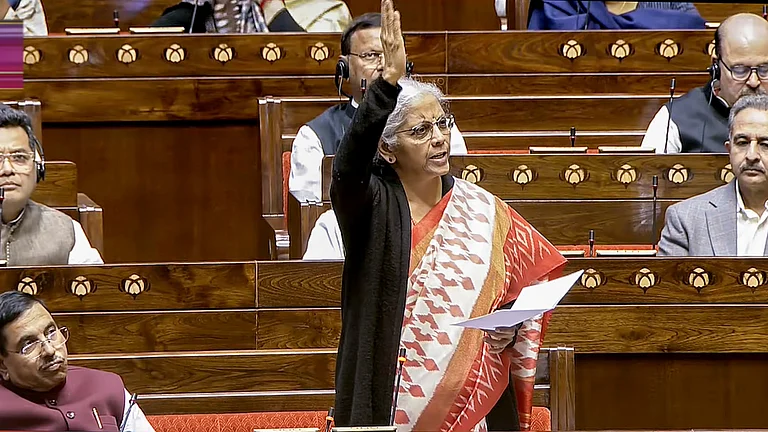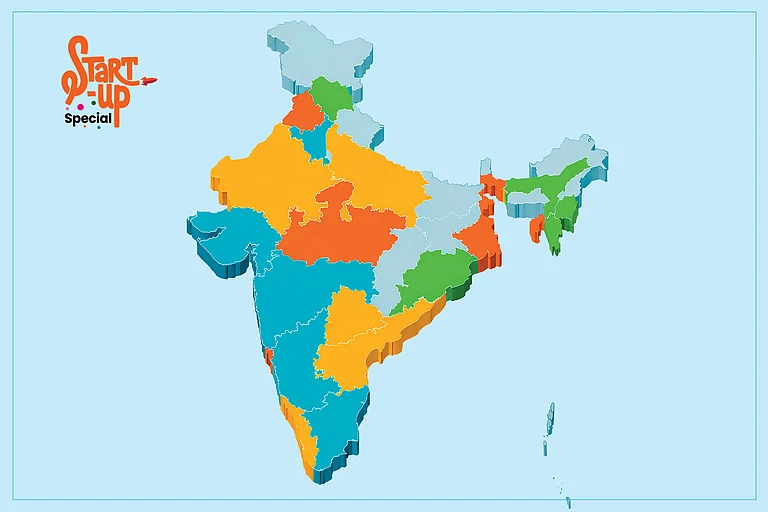Logistics industry plays a pivotal role in the development of a country’s economy, contributing to the nation’s GDP and providing employment. India’s logistics market is estimated to register compound annual growth rate of 7-8 per cent over the next few years backed by increasing e-commerce penetration, infrastructure development, government initiatives, demand for efficient supply chains and technological advancements, to reach a projected revenue of US$ 484 Billion by 2029.
India's logistics industry, is currently valued at over US$ 317 Billion in 2024. The startup sector, estimated at US$ 10 Billion, is projected to reach US$ 30 Billion by 2025. With over 1,500 logistics startups operating in India as on December 31, 2023 and attracting US$ 4 Billion in funding over the past five years, startups are leading the charge in addressing traditional challenges through innovation and technology.
Key Factors Driving Logistics Growth in India
The exponential growth in the e-commerce & Q-Commerce market in the last few years has been one of the key growth drivers for the logistics industry in India. Changing consumer behaviour and increased adoption of smartphone usage has led to a rapid growth of online retail, which has significantly increased the demand for efficient last-mile delivery services.
A slew of reforms undertaken by the government including the PM GatiShakti National Master Plan and the National Logistics Policy (NLP) rolled out in October 2021 and September 2022 respectively have helped boost efficiency and lower logistics costs. This apart, digital reforms, such as the Unified Logistics Interface Platform (ULIP) and the Logistics Data Bank, are some additional measures taken towards improving logistics. It is to be noted that the country has witnessed rapid strides in the logistics sector with India’s rank in the World Bank’s Logistics Performance Index improving by six places, from 44th in 2018 to 38th in 2023 out of 139 countries.
The Sagarmala scheme has promoted port-led development by harnessing India’s 7,500 km long coastline, 14,500 km of potentially navigable waterways and strategic location on key international maritime trade routes. The Goods and Services Tax (GST) has played a remarkable role in formalisation of the sector and reducing logistics costs across all modes of transit & storage – especially by ensuring that trucks do not have to wait for hours on state borders, thereby reducing travel time by up to 30 per cent.
However, India’s freight movement continues to remain heavily skewed toward road transportation, which moves 66% of cargo, followed by rail (31%), shipping (3%) and air (1%).
Opportunities For Start-ups
Every day, there are incremental opportunities emerging in logistics services related to freight & trucking, last-mile delivery, warehousing & fulfilment, cross border logistics, hyper-local deliveries, documentation solutions, technological solutions or sustainable logistics solutions. Start-ups on their part can play a critical role in addressing critical challenges confronting the sector by adopting advanced technologies such as AI, ML, blockchain and automation thereby enabling better tracking, transparency, and resource optimisation.
The smaller size and agility of start-ups enables them to focus on niche segments or categories creating a strong market presence. Keeping ears-to-the-ground and with nimble manoeuvring, these start-ups can identify and solve for specific requirements of various established industries such as healthcare, FMCG, agri++ etc. They can also partner with larger and more established players by leveraging technology for enabling a host of value added services. These solutions can ride on top of the basic core services, provided by large operators which are relatively more capital intensive, for enhanced value benefits to the customers. Value Added Solutions help start-ups to gain entry and access to larger deals – ensuring sustained revenue opportunities & growth momentum.
Furthermore Sustainability, has been receiving a lot of emphasis both from investors as well as consumers. With India setting all-out to achieve its net zero targets by 2070, there is an increasing focus on green logistics. Hence, start-ups offering eco-friendly and sustainable alternatives or even consultancies for carbon footprint reduction strategies will clearly be in an advantageous position.
Inspite of these varied & unique opportunities, logistics sector in India has been able to attract only 1 per cent of the total 1.4 Lac start-ups registered with DPIIT. High initial costs entailing significant investment in fleet, warehousing, and technology infrastructure; fragmented nature of the industry; difficulty in complying with complex regulatory requirements and lack of skilled workforce are some of the key challenges confronting the growth of start-ups in logistics sector at present.
However, despite facing innumerable challenges, the world has witnessed the grit & determination of Indian start-ups to emerge taller & stronger from every challenge. Their agility, capability to create innovative solutions, quickly addressing specific market needs, focusing on business continuity and resilience is really commendable. These unique strengths make them the prime contenders for capitalising on the available market opportunities of the growing economy of India. With the right approach, logistics start-ups can not only thrive, but also play a pivotal role in transforming the sector into a global benchmark of efficiency and innovation.
The author is a Past President, Assocham and Managing Director, Transport Corporation of India Ltd.


























